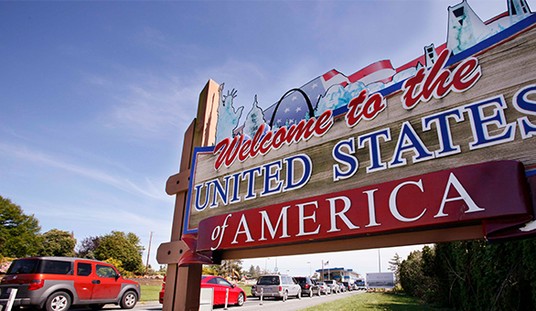A deal to reach a deal next year on a new climate change treaty was reached by 190 nations in Lima, Peru, on Sunday, as nations put off big decisions on what to do about global warming until a conference in Paris in 2015.
Major points of agreement included appeasing emerging economies like China and India by making rich nations mostly responsible for funding third world climate mitigation efforts, despite the fact that China is the number one emitter of greenhouse gases in the world and India is 4th.
The Lima deal also recognizes for the first time that all nations have to cut their emissions — a sop to rich countries who complained that global warming is a global problem and that all countries must participate in the reduction schemes.
But in the end, the deal is relatively meaningless. All the issues that nearly caused the talks to collapse were put off until the Paris conference next year.
More than 30 hours behind schedule, delegates from more than 190 countries agreed on what information should go into the pledges that countries submit for the expected Paris pact.
They argued all day Saturday over the wording for the watered-down deal, with developing nations worried that the text blurred the distinction between what rich and poor countries can be expected to do.
Many developing countries, the most vulnerable to climate change’s impacts, accuse rich nations of shirking their responsibilities to curb climate change and pay for the damage it inflicts.
The final draft of the deal alleviated those concerns with language saying countries have “common but differentiated responsibilities” to deal with global warming.
“As a text it’s not perfect, but it includes the positions of the parties,” said Environment Minister Manuel Pulgar-Vidal, who was the conference chairman and had spent most of the day meeting separately with delegations.
In presenting a new, fourth draft just before midnight, Peru’s environment minister gave a sharply reduced body of delegates an hour to review it. Many delegates had already quit the makeshift conference center on the grounds of Peru’s army headquarters.
It also restored language demanded by small island states at risk of being flooded by rising seas, mentioning a “loss and damage” mechanism agreed upon in last year’s talks in Poland that recognizes that nations hardest hit by climate change will require financial and technical help.
“We need a permanent arrangement to help the poorest of the world,” Ian Fry, negotiator for the Pacific Island nation of Tuvalu, said at a midday session.
However, the approved draft weakened language on the content of the pledges, saying they “may” instead of “shall” include quantifiable information showing how countries intend to meet their emissions targets.
Also, top carbon polluter China and other major developing countries opposed plans for a review process that would allow the pledges to be compared against one another before Paris.
In Lima, the momentum from last month’s joint U.S.-China deal on emissions targets faded quickly as rifts reopened over who should do what to fight global warming. The goal of the talks is to shape a global agreement in Paris that puts the world on a path to reduce the heat-trapping gases that scientists say are warming the planet.
That “financial and technical assistance” will come out of the pockets of largely western taxpayers. Cost estimates have varied wildly, but one study predicted a cost of $2 trillion a year worldwide by 2050, with most of that being born by the US and the EU. By then, the US is expected to decrease its carbon emissions by 80%.
Not all of that cost will be in taxes, but a sizable portion will be. There are also expected to be some savings as we move to more efficient energy sources. But that’s just for morale. The fact is, climate change will cut economic growth significantly, which means fewer jobs created and less wealth.
The world seems hell bent on fighting climate change even though there is scant evidence that the “solutions” being offered will affect the rise in temperatures. What these treaties will accomplish will be the social goal of transferring wealth from rich countries to the control of thugs, deadbeats, kleptocrats, and fanatics in poor countries.










Join the conversation as a VIP Member